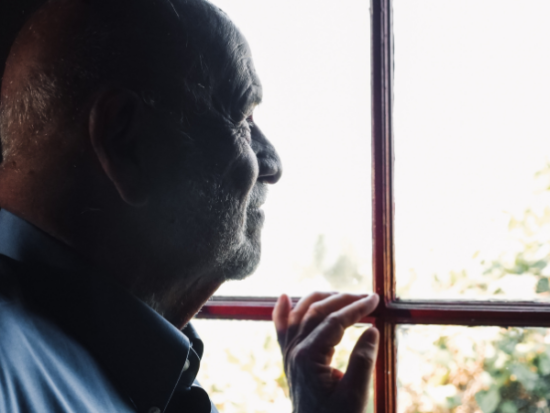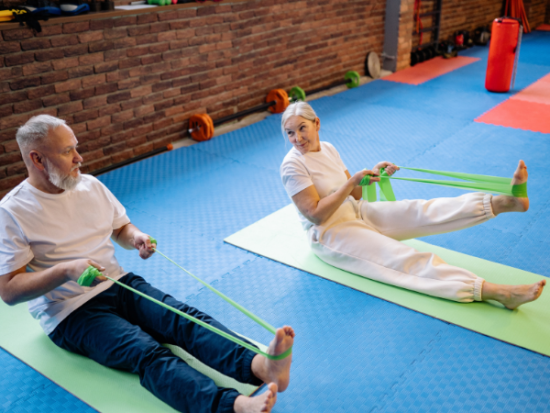What is sundowners syndrome? What to know
Sundowners Syndrome is a state or group of symptoms rather than an actual disease. The term “sundowning” refers to a state of confusion that usually occurs from the late afternoon and well into the night. It usually affects people with forms of dementia like Alzheimer’s disease. The effects can vary from mild to serious.
The exact cause of Sundowner’s Syndrome is still unknown. Some factors might trigger it, but no exact way to stop it. Older people who experience sundowning are often confused, anxious, agitated, and sometimes even aggressive. To know more about sundowning, read on down below.
Early signs of Sundowners Syndrome

Sundowners Syndrome can last from a few hours up to an entire late afternoon and night. A person with dementia experiencing sundowning can show various symptoms. Some are barely detectable if no one is paying close attention to the patient. Memory loss, personality changes, and restlessness are some of the early symptoms of sundowning.
You might want to look out for other symptoms are agitation, irritability, disorientation, demandingness, and suspicion. These might manifest in loud yelling, constant pacing, mood swings, paranoia, hallucinations, and increased activity even in the middle of the night. Patients with Alzheimer’s dementia are likely to experience these as well.
This may worsen throughout the whole episode but do not panic. Know what best to do and how to do it calmly when your patient or loved one is exhibiting symptoms.
Possible triggers of sundowning
According to the National Institute on Aging (NIA), there is no known medical reason for Sundowners Syndrome. However, people who experience them as side effects are usually mentally and physically exhausted from their daily routine. Increasingly confusing behavior is one indication. Lack of sleep and poor diet can also be a trigger for dementia patients.
Tips for reducing sundowning
The general medical advice on reducing the symptoms of Sundowners Syndrome is some lifestyle changes and medications. Natural therapy like soothing music and exercise also helps. As a caretaker, it is important that you need to have extra of everything when taking care of a patient experiencing sundowning — patience, time, and energy.
Predictable daily routine
Try to set up a schedule and follow it consistently. The patient needs to wake up, eat meals, take meds, do physical activity, and head to bed. From late afternoon or early evening, start monitoring symptoms as they arise. Sundowners Syndrome usually starts when the sun goes down, hence the name, so be prepared beforehand.
Prepare a healthy diet
A healthy body needs healthy sustenance. Prepare healthy and delicious meals for the patient to keep them energized throughout the day. Work with their doctor if there are diet restrictions.
Ensure all allergies and intolerance are noted so that the patient won’t have adverse reactions to their meals. Also, pay attention to their bowel movements to ensure everything is fine.
Address cause of sleep problems
Lack of sleep is a trigger for many who experience sundowning. Limit daytime napping so that the patient’s body clock is not disturbed. Reduce screen time from gadgets and caffeine throughout the day.
Natural relaxers like chamomile tea and dark rooms could also help. Reduce excessive physical activity or anything that can disrupt the patient’s relaxed mood.
Try to keep active in the day.
Schedule physical activities early in the day, so the patient still has the energy. However, be very careful not to overdo it. Light walking and exercise are enough for aging patients.
Try asking them what sort of activity they might enjoy. Switching it up to a Zumba session or gardening can be good for them.
Stimulate mental activity
Many care homes encourage board games and other stimulating brain activities to their aging patients. Reduce TV viewing if symptoms start to worsen as the noise and flashing lights can agitate them. Play games like cards or teach them art at an earlier time of day. Also, try to help the patient socialize with other people their age if they are still physically able to walk and talk.
Communicate with the patient
There is no better way to connect to your patient not just as a carer but as a human being than talking and communicating. Even if they can no longer reply coherently or at all, try conversing with them in low, soothing voices. Convey that you are there to take care of their needs and that they are in no immediate harm to help them relax.
How do you handle someone with Sundowners Syndrome?
Being a caretaker of someone exhibiting sundowning behavior is not an easy task. Some medical professionals are trained in these situations. However, if you have a loved one who is starting to show symptoms, there are some practices you might want to try. For starters, when the patient starts acting confused, anxious, and agitated, the most important thing is patience.
Calmly approach the patient. Much like consoling a scared person, handle the situation with as much stability as you can. Offer them comfort and reassurance.
Try to find out if they need food, the bathroom, or some light exercise. Don’t use physical contact as it can scare them off. Talk very gently and wait until they approach you calmly.
Can you have Sundowners without dementia?
Up to 1 out of 5 people with Alzheimer’s get sundowners syndrome. It is a common symptom of dementia and the most notable one. Experts believe this may have something to do with the disease affecting the brain’s structure and capabilities as old age approaches. However, sundowning can also occur for people who don’t have dementia.
However, it is important to note that sundowning commonly occurs from late afternoon throughout the night, hence the name. Older folks who have spotty memories may not necessarily have Sundowners Syndrome. If unsure, check with your patient’s doctor to address any problem and prevent or manage it in its early stages.
Related Articles
Summary
Sundowners Syndrome is a common set of symptoms amongst people with dementia. Although the disease itself usually affects older people, its side effects can vary. Some patients experience only mild sundowning that can easily be managed at home with tender, loving care for their loved ones. Others exhibit extreme sundowning, like aggressive behavior.
When this happens, and you are unsure what to do, it is best to call 911 if it’s an emergency. Try hiring a professional caretaker trained to handle sundowning patients, or try to take courses so you can do it yourself. Above all, if you are a caretaker, be prepared emotionally and physically to take on the toll of Sundowners Syndrome on your patient and you.





